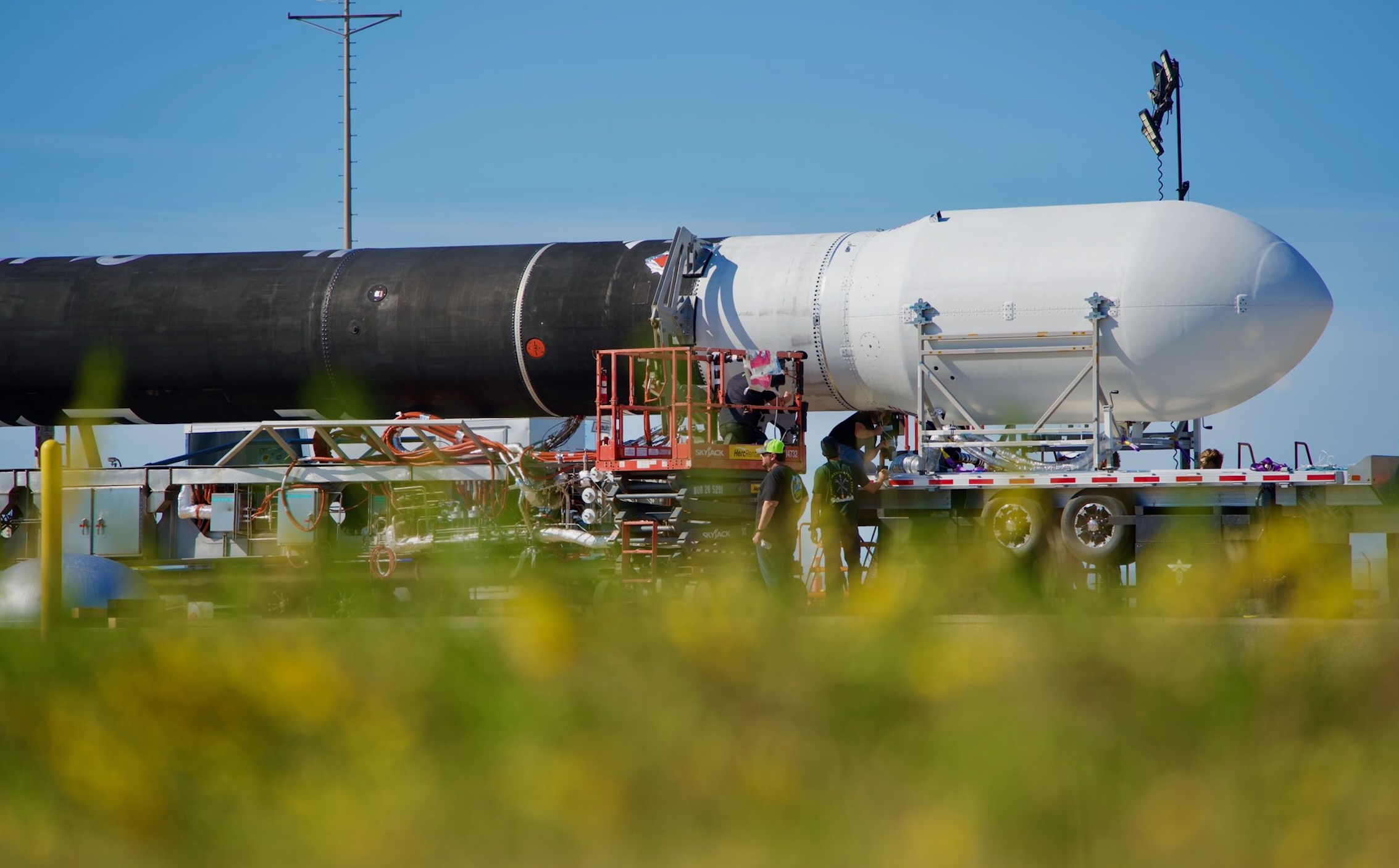Vice President Harris to lead her 1st National Space Council meeting Dec. 1
Breaking space news, the latest updates on rocket launches, skywatching events and more!
You are now subscribed
Your newsletter sign-up was successful
Want to add more newsletters?
Circle Dec. 1 on your calendars, space fans.
That day will mark the first meeting of the National Space Council, which helps steer U.S. space policy, under Vice President Kamala Harris. And she plans to get a lot done.
"Really looking forward to that," Harris said in a speech Friday (Nov. 5) at NASA's Goddard Space Flight Center in Greenbelt, Maryland. "And at that meeting, we will outline a comprehensive framework for our nation's space priorities, from our civilian efforts … to our military and national security efforts to STEM [science, technology, engineering and math] education and the emerging space economy."
Related: Presidential visions for space exploration: From Ike to Biden

Helping the U.S. and the world deal with the ongoing climate crisis will be one of those priorities, Harris made clear during her speech.
"Climate change is an existential threat, and we must take immediate action to address it," she said.
"As our nation works to meet our climate commitments, we know that our actions cannot be limited to only what we can do on Earth," Harris added. "Right at this minute, we are monitoring emissions and measuring the impact of climate change from space. We have a fleet of satellites and sensors, providing citizens and scientists the data that they — that you —need to mitigate the impact and to adapt to the impact."
Breaking space news, the latest updates on rocket launches, skywatching events and more!
As an example, she cited Landsat 9, a joint NASA-United States Geological Survey (USGS) mission that launched on Sept. 27. The spacecraft is continuing the 50-year legacy of the Landsat program, which has been observing Earth from orbit since 1972.
Landsat 9 snapped its first photos on Oct. 31, and NASA and the USGS released them on Friday. The satellite's imagery, as well as pictures captured by other Earth-observation craft, are an incredibly valuable resource, especially given the trying times we live in, Harris said.
"These images can be used by first responders to help save lives," she said. "These images can be used by farmers to assess their crops as drought and heat threaten their yield. These images can be used by scientists who are working to combat climate change head-on."
NASA Administrator Bill Nelson spoke during Friday's Goddard event as well, and he similarly emphasized the importance of the agency's work in the climate fight.
NASA is "the point of the spear on climate change," Nelson said. "We are the leading climate agency, and the proof's in the pudding."
He cited the Landsat program, among other examples, and noted that NASA plans to launch five "great observatories" over the next decade to take our planet's measure like never before.
"That will give us precision in our measurements of the land, the oceans, the atmosphere and the ice, and it will create a 3D composite [so] that we can see in great detail — more detail than we have now — what is happening to our Earth," Nelson said.
He also announced the selection of a new three-satellite mission called INCUS ("Investigation of Convective Updrafts"), which will study storms and their impact on climate and weather models. INCUS, whose price tag is about $177 million, not including launch costs, is expected to lift off in 2027.
With this avowed focus on climate work and Earth science in general, Harris and President Joe Biden are departing significantly from their predecessors. When Donald Trump was president, he repeatedly tried to cut NASA Earth science budgets and missions, though not always successfully.
President Trump revived the National Space Council, which had not been active since the early 1990s. Trump's vice president, Mike Pence, chaired eight meetings of the council between 2017 and 2020.
Mike Wall is the author of "Out There" (Grand Central Publishing, 2018; illustrated by Karl Tate), a book about the search for alien life. Follow him on Twitter @michaeldwall. Follow us on Twitter @Spacedotcom or Facebook.

Michael Wall is a Senior Space Writer with Space.com and joined the team in 2010. He primarily covers exoplanets, spaceflight and military space, but has been known to dabble in the space art beat. His book about the search for alien life, "Out There," was published on Nov. 13, 2018. Before becoming a science writer, Michael worked as a herpetologist and wildlife biologist. He has a Ph.D. in evolutionary biology from the University of Sydney, Australia, a bachelor's degree from the University of Arizona, and a graduate certificate in science writing from the University of California, Santa Cruz. To find out what his latest project is, you can follow Michael on Twitter.
